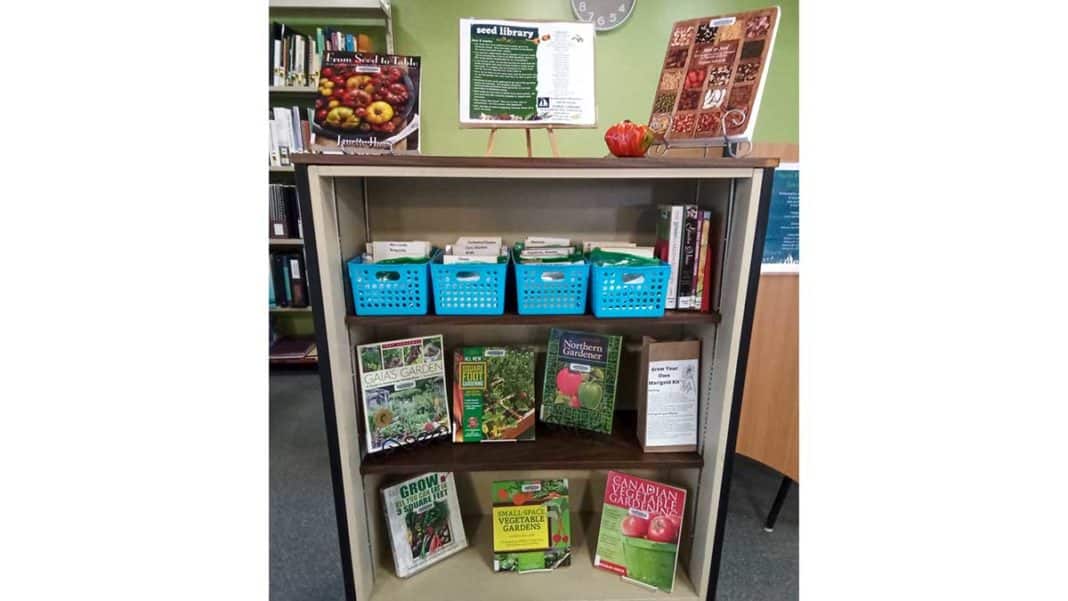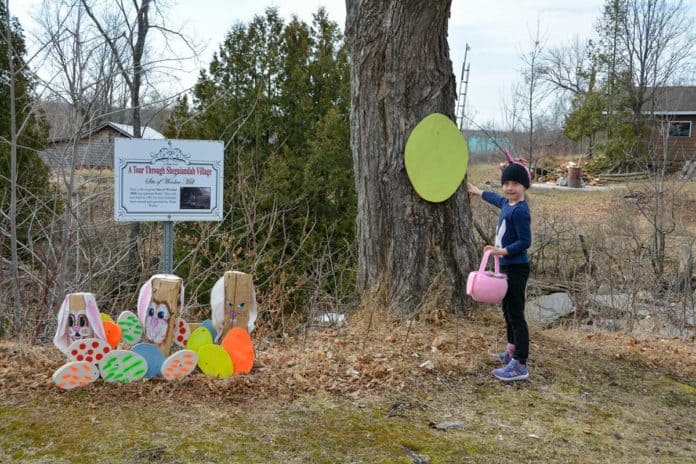LITTLE CURRENT – The Northeastern Manitoulin and the Islands (Northeast Town) Public Library has expanded its collection to include a seed library, allowing library card holders to borrow open-pollinated, heirloom seeds adapted to growing on Manitoulin in exchange for returning the seeds of those plants back to the library after the growing season.
“I had considered (launching a seed library) previously as something that would be good for the community, but I didn’t know it was already being done with libraries generally. When I got this job, I thought about it again and decided to start collecting seeds myself from that season and whoever else was willing to donate last fall,” said Northeast Town Public Library CEO Kathy Berry.
The seed library had an introduction last October with a virtual workshop explaining the service and the process of growing and saving seeds: the seed bank officially opened in late March.
Tehkummah and Debajehmujig Storytellers both operate annual seed swaps, with the latter maintaining a year-round seed bank and the former keeping its leftovers from the yearly event in its library for people to pick them up if they miss the event date.
Little Current’s seed bank features seeds on a spectrum between decorative plants like flowers, ornamental and food-bearing plants like climbing beans and amaranth, and edible varieties like beans and radishes. A full list is posted on the seed lending library at the Northeast Town Public Library website.
Many of the starter seeds in the collection came from Northeast Town-based Grass Roots Garden Club, using the leftovers from its annual seed exchange. Club organizer Jean Narozansky of Pepper Point Gardens in Sheguiandah said it was great news that there would be a permanent seed exchange installation at the library.
“A seed library is wonderful because it will preserve the variations in every species,” she told The Expositor. “There’s so many very large seed companies that dominate the market and they are not really honouring the traditional seeds. It’s harder to find heritage seeds now.”
Community-level seed exchanges deal in heirloom or open-pollinated seeds, which broadly refer to plants that are naturally pollinated, rather than hybrid varieties bred by companies to achieve a desired outcome. Hybrid seeds will generally still grow a plant but not produce food, if saved and planted in a following year, whereas heirloom varieties are those that have grown naturally for generations.
Ms. Berry said the focus is on seeds that have grown on Manitoulin Island for at least one generation and have adapted to the local climate, to improve the chances for their success.
There are opportunities for the young ones to get involved, too—library staff used the marigold seeds they had on hand to create marigold growing kits for kids. These have been popular but as of the beginning of April, the library still had 15 kits left.
To ensure there are seeds for years to come, everyone who takes seeds is asked to return at least three times as many at the end of the growing season.
“There’s a food security element because we will have seeds that have been grown on the Island for generations, and also just the community benefit of people sharing and exchanging,” Ms. Berry said.
Anyone who wishes to use the seed bank should call, visit or send an online message to the library to inquire about availability. The service is included with one’s library card, which is free for all Northeast Town residents and $30 per year for those from other municipalities.
Visit the Northeast Town Public Library website at nemi.olsn.ca for more details about the program and a list of varieties currently in the seed bank.





